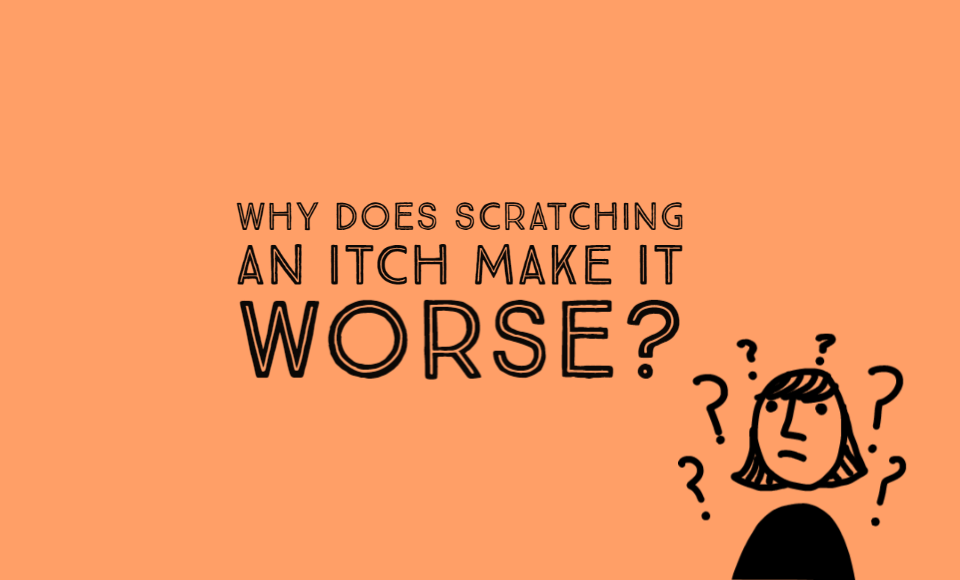Unknowingly, an insect bites you, and after a few minutes, you felt an itch in your arm. You scratch it to remove the irritation, and again it just becomes itchier, and you keep on scratching that had caused a wound to your skin. Whether it’s a mosquito bite, eczema, or chickenpox, any relief from scratching is temporary, and too much scratching can worsen the itch and the condition of your skin.
Not all itches are alike and have the same causes. One major cause of skin itching is an unhealthy skin condition, including xerosis or the drying of the skin, eczema or dermatitis, burns, scabies, psoriasis, and insect bites and hives.
However, there are cases that skin itching is a symptom of an underlying internal disease such as liver disease, kidney failure, iron deficiency anemia, thyroid problems, and certain cancers, including multiple myeloma and lymphoma. In some instances, nerve disorders caused by multiple sclerosis, diabetes, pinched nerves, and shingles can cause itching.
Some people who have a psychiatric disease, anxiety, OCD, and depression can cause itch to the skin. Some women, during their pregnancy, may experience itchy skin due to hormonal imbalances. While skin reactions may occur due to some allergens from food, soaps, chemicals, wool, cosmetics, and medications can cause itchy skin. But whichever the reason is, though it feels good to scratch, it not good for your skin because it can lead to wounds or scar to your skin and even infections. It can also make you feel stressed and anxious. (click here for more details)
What happens when we scratch our skin?
It’s always tempting to scratch an itchy skin because you thought it provides relief. It works, but it causes a little pain. The neurons in the spinal cord send this pain signal to the brain instead of the itch signal. According to Dr. Zhou-Feng Chen, Ph.D., director of Washington University’s Center for the Study of Itch, when the brain receives the pain signal, it responds by producing the neurotransmitter serotonin to help control the pain.
Moreover, Chen and his team found out that there is a muddling effect of the serotonin to the sensation of pain and itch, whereby, as serotonin spreads from the brain to the spinal cord, pain-sensing neurons instead influence itch intensity.
In the case of chronic eczema, the team also found out that serotonin drives the itch-scratch cycle by providing a “reward” sensation when a patient scratches.
Please take note that the more you scratch, the itchier it becomes because the pain from scratching makes your body release the pain-fighting chemical serotonin, which can make the itch feel even itchier.
The more you scratch, the more it gets itchy. The more it gets itchy, the more you scratch, and this cycle becomes continuous until you cause a wound or scar to your skin. So what should you do then?
Do you immediately need to see a skin specialist or a dermatologist? It depends, if you think your entire body is itching, you probably needed to see a doctor. However, minor inching can be remedied at home.
You can apply menthol. It can be a ready-made essential oil or the fresh mints from your pots. It helps to relieve the pain and itching because of its cooling effect. A study in 2012 found out that peppermint oil could effectively treat itchy skin in pregnant women. The study used sesame oil infused with a 0.5 percent concentration of peppermint oil. Always dilute essential oils in a carrier oil before applying them to the skin. (click here for more details)
Another very simple and accessible way is an application of cold, wet cloth to the itchy part of the skin. According to the American Academy of Dermatology, cooling reduces inflammation that may be contributing to the itch. In 5-1o minutes, put an ice-pack or iced cloth to an itchy area. But make sure not to put the ice directly to the skin as it might cause burn.
You can also keep your moisturizing creams and lotions in the refrigerator so that it will have a direct cooling effect on your skin when you use them.
Get some baking soda, mix it with a little warm water, and then apply it onto the itchy area. It has antifungal properties, and research suggests it is an effective treatment for fungal skin conditions, which also a common cause of the itch. (click here for more details)
